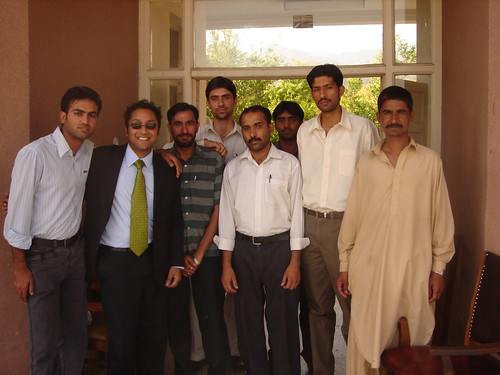Now is the key
moment when Iraq's leaders decide whether they wish to become a united democracy or lapse into civil war and despotism. As I wrote at
Austin Bay's blog:
I suspect that Iraqi politicians aren't used to parliamentary maneuvering, and that's a big part of the political problem.
In tribal politics, loyalties are fixed: the rank-and-file don't negotiate among themselves, they just follow their leaders. In parliamentary politics, the rank-and-file talk among themselves, and if their party leaders are unsatisfactory, they use their own initiative to gang up and toss their leaders out.
Look carefully at the behavior of Iraqi politicians since the last election and I think you see the tribal politics mentality, not the parliamentary one. Iraqi bigwigs were trying to commit the loyalties of rank-and-file even before all the votes were counted.
The solution, then, is to nudge parliamentarians who are uncomfortable with their leadership to gang up and betray them. Not an easy thing when the leaders have their own militias! Perhaps opening up the Green Zone to the parliamentarians would help?
If Iraqi parliamentarians can
re-align their political system along non-sectarian lines they can
re-assert control of the police forces and dismantle the militias. Otherwise, Iraq will become just another Lebanon, a place where people vote almost exclusively along religious or tribal lines, resulting in separate fiefdoms and stagnant politics punctuated by violence at best, or civil war and foreign intervention at worst.
What will the U.S. do in such circumstances? Why, just shrug and
move on to the the next target in the Global War on Terror. The threat to the U.S. posed by a loose Saddam is over, and the Iraqis will have had their chance to improve matters.

